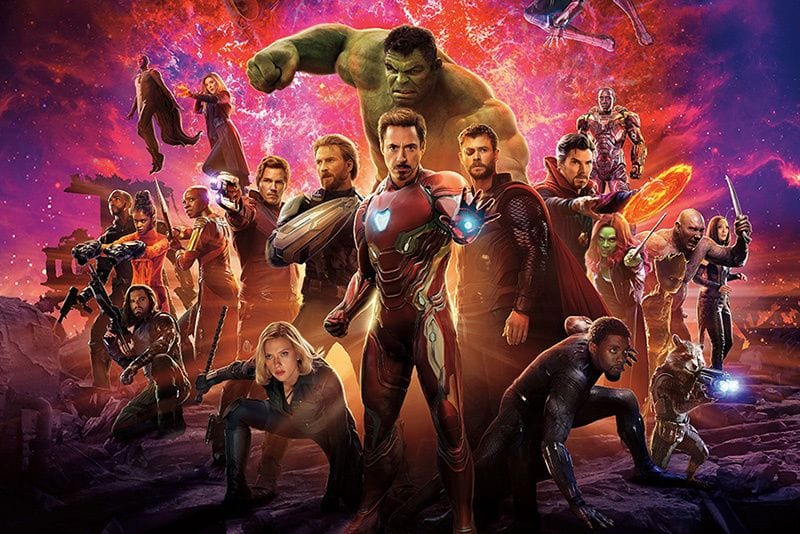19. The Incredible Hulk (2008)
Coming out just a month after Marvel Studios’ first triumph in Iron Man, Louis Leterrier’s The Incredible Hulk sought to bulk up the series with Marvel’s green heavyweight. Nothing of the sort occurred in this film. Although memorable moments like the chase scene through Rio De Janeiro and the tense first reveal of the Hulk’s power in the bottling factory gave the film some likability in the beginning, no film in the MCU has aged as badly as this one.
The acting, especially the chemistry between actors, is often stiff. And knowing now how great Mark Ruffalo was going to portray Bruce Banner in films to come, Edward Norton’s Banner just seems awkward. Also awkward: Ty Burrell, that guy from Modern Family, dating Liv Tyler. On another note, the special effects are some of the worst in the series with heavily dated explosions and a truly awful-looking Abomination played by Tim Roth. Today, it’s a hard film to get through whilst taking it seriously. It’s not a wonder why Marvel has been very weary of giving Hulk another standalone spinoff. – Chris Thiessen
Read more on The Incredible Hulk here.
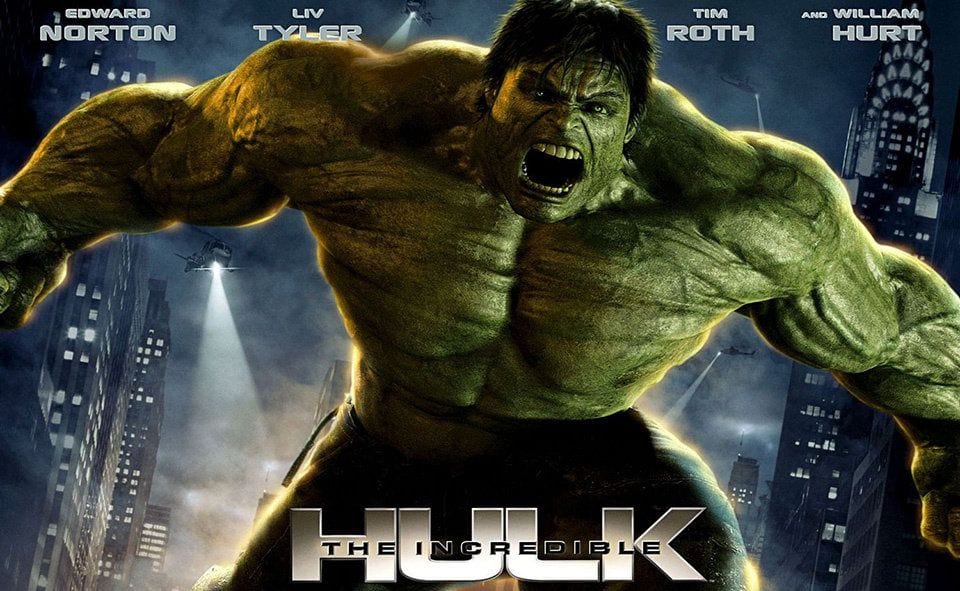
18. Iron Man 2 (2010)
There are two major misconceptions that continue to exist about Iron Man 2: that it’s terrible and that it’s important for the sake of the MCU. Let’s be honest: when you think about Whiplash slicing Tony’s race car in half or the various humiliations that Sam Rockwell’s Justin Hammer must endure in his quest to out-strip Tony of his playboy billionaire status, these are positive memories. As a sequel to a game-changing piece of superhero cinema, Iron Man 2, honestly, is more of the same. The stakes aren’t as emotional as in the Iron Man films on either side of it, but it’s still crackling fun.
Yet the biggest criticism against Iron Man 2 is that it’s utterly inessential. While it does introduce Black Widow and breaks Don Cheadle into the role of War Machine, you can jump into just about any other MCU vehicle without skipping a single story beat. In truth, this was partially due to Kevin Feige’s learning curve, as reports surfaced of contention between Marvel and director Jon Favreau, and Marvel demanding that elements like Black Widow be shoehorned in even if it didn’t help the universe Favreau was going for. At the end of the day, it’s not the finest Stark Industries product, but not the worst thing Marvel has done in the MCU, either. – Evan Sawdey
Read more on Iron Man 2 here.
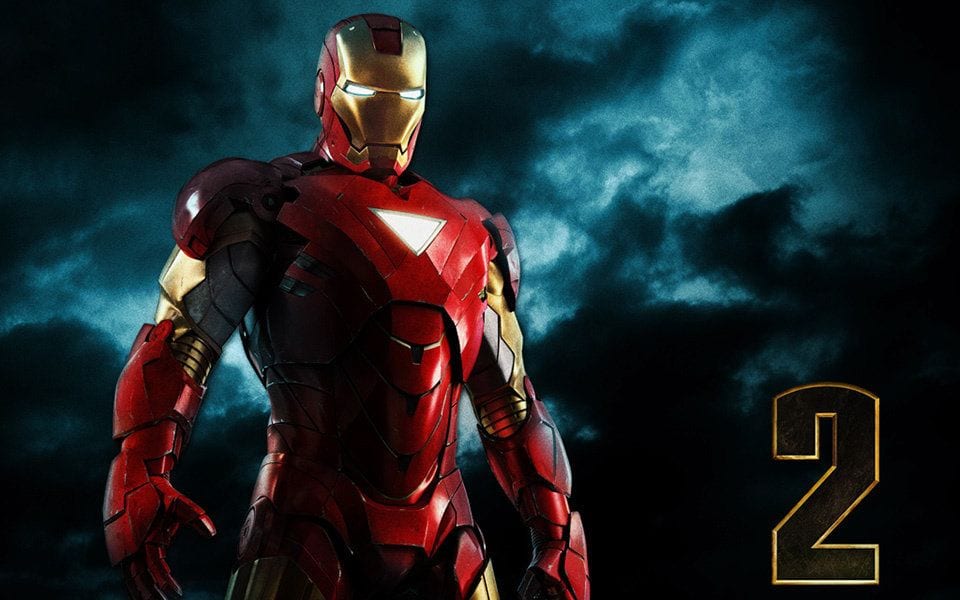
17. Thor: The Dark World (2013)
Thor is the major character that Marvel took the longest time to figure out on screen. Whereas Iron Man and Captain America went in bold new directions following The Avengers, Thor seemed to play things very safe. The Dark World attempts to delve deeper into the Thor mythology with more scenes in Asgard and the other realms, and Dark Elves as the main villains. But Christopher Eccleston’s villainous Malekith barely registers and is often used as a prime example of the MCU’s problem with forgettable villains. It doesn’t help that he appears alongside Marvel’s most charismatic villain, Loki. Despite delving deeper into the mythos, the film also brings back Thor’s Earthly supporting cast, Jane Foster, Darcy, Dr. Selvig, in an unnecessary attempt to connect to the first Thor film. This is especially glaring with Jane, whose romance with Thor is completely underserved and devoid of chemistry, despite the talented actors involved. Ultimately, Thor: The Dark World is fun to watch, with a very fun realm-hopping climax, but utterly forgettable after the fact. – Michael Curley
Read more on Thor: The Dark World here.
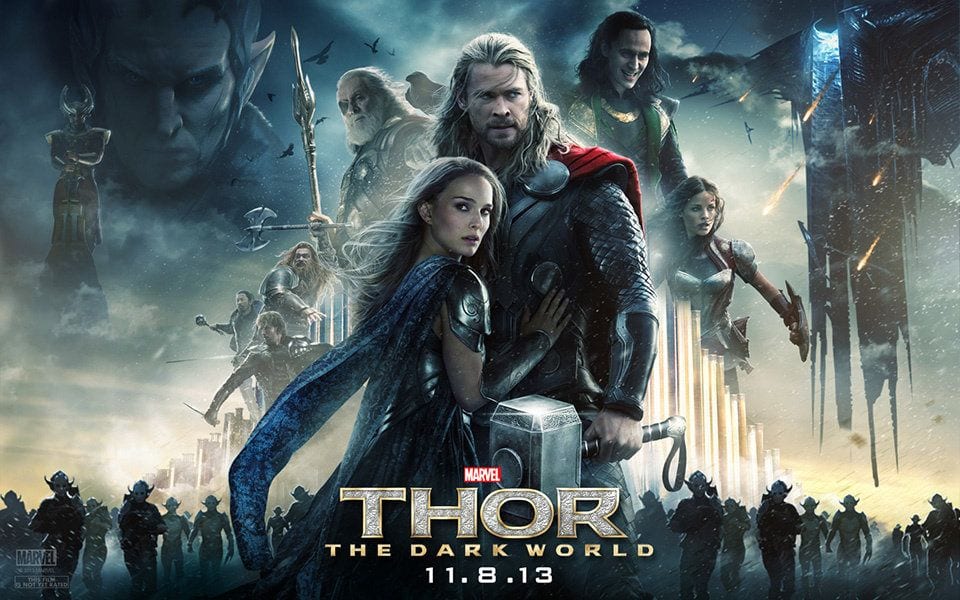
16. Avengers: Age of Ultron (2015)
Perhaps Avengers: Age of Ultron was always doomed to be a disappointment. On the heels of The Avengers, arguably the perfect synthesis of action, comedy, and dramatic character moments, Joss Whedon was tasked with catching lightning in a bottle… again. Any success he manages to achieve is due solely to his impeccable cast and our affection for these characters. Whedon crafts a mildly interesting story, with Tony Stark inadvertently creating a maniacal artificial intelligence called Ultron, but the exhilarating sense of discovery from The Avengers is gone.
The result is an oddly flat affair. Oftentimes, the characters disappear in a swirl of computer-generated nonsense. Instead of witty banter and quiet moments of reflection, we’re placated with tedious scenes of listless action. Whedon feels hamstrung; forced to abandon his strengths as a screenwriter in favor of laying the groundwork for Phase Three of the MCU. Ultimately, Avengers: Age of Ultron suffers from the inescapable fact that it’s more fun to assemble The Avengers than it is to split them apart. – J.R. Kinnard
Read more on Avengers: Age of Ultron here.
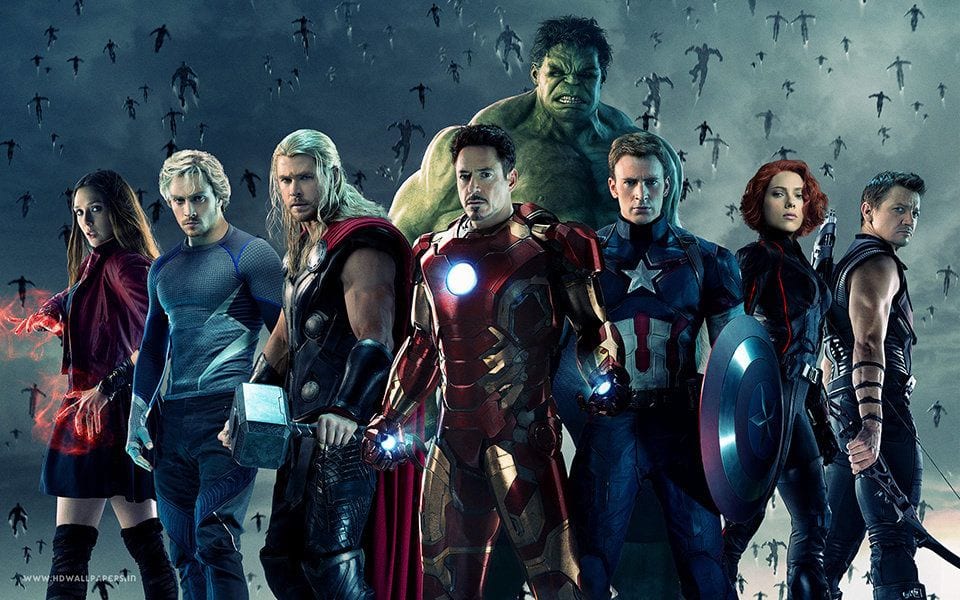
15. Ant-Man (2015)
Ant-Man was originally set to be one of the first MCU films, with a release date in 2009 or 2010. Production issues and creative disagreements, including the loss of writer/director Edgar Wright, delayed the film until 2015 when it felt like a throwback to the smaller-scale, less interconnected early MCU films. All of this seems like a recipe for disaster, so it’s a minor miracle that Ant-Man holds together so well.
The more focused approach was welcome counter-programming to the epic-scale films surrounding it. Ant-Man makes clever use of its eponymous hero’s unique shrinking powers to tell a light, breezy heist film set in the MCU, and the well-cast ensemble has a lot of fun. The film, however, feels inconsequential and disconnected from the larger universe. This initially seems like one of the film’s strengths, but ultimately becomes its main weakness. Despite being a fun diversion, it’s one of the inessential films in the overarching serialized narrative of the MCU. – Michael Curley
Read more on Ant-Man here.
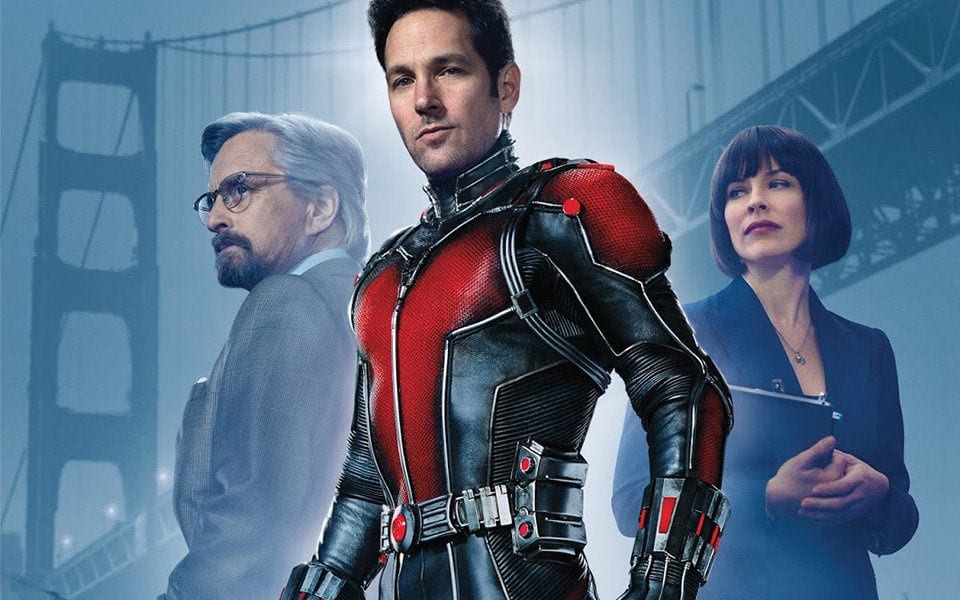
14. Thor (2011)
Some people have downplayed the significance of the first Thor film, and they do so at their own detriment. After all, this is the movie that introduced us to Hawkeye. We’re kidding, but for all that’s been written about how utterly terrible Thor: The Dark World is (and it’s garbage, make no mistake) and how good Thor: Ragnarok is (as it embraces the psychedelic premise of the character instead of taking it all so darn seriously), the original Thor deserves credit for pulling off one of the trickiest and difficult tasks in the entire MCU: bridging the “real world” of Iron Man and Captain America with realms full of magic, wizards, and gods.
By showing so much of Asgard and allowing Thor to crash land onto Earth and have a human love interest in the form of Natalie Portman, it was fun to see Thor in a fish-out-of-water scenario as he navigates both the customs and the threats facing our humble planet. Some may wonder why we’re spending so much time defending a small town from a fire monster, but it was important to establish godly threats placed against our mortal realm.
Yet for all the film’s histrionics and utterly forgettable side-characters, the relationship between Thor (Chris Hemsworth) and his trickster half-brother Loki (Tom Hiddleston) has endured across multiple films, highlighting the love and hate that defines so many sibling rivalries, whether or not the universe is at stake because of them. For this reason alone, Thor truly deserves its respect. – Evan Sawdey
Read more on Thor here.
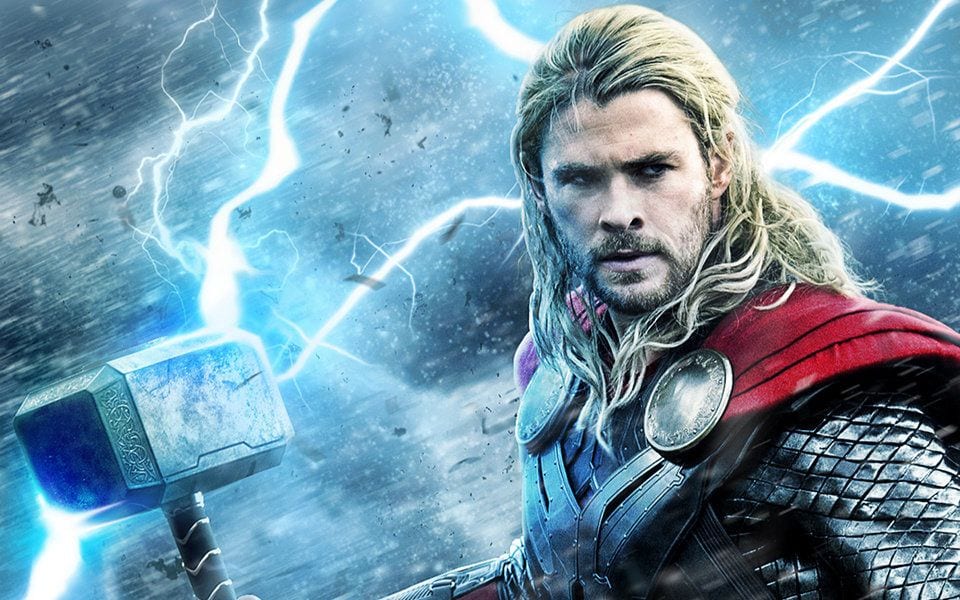
13. Guardians of the Galaxy, Vol. 2 (2017)
Except for Avengers: Age of Ultron, no other film in the MCU had to meet higher expectations than Guardians of the Galaxy Vol. 2, the sequel to one of Marvel Studios’ best and most successful films. Predictably, and even though the result was not outright bad by any means, it didn’t live up to expectations.
What made the first installment so much fun was the contrast between the relaxed, comedic Guardians and the rigid, formal and overly serious world in which they acted. That was the pith of the comedy. In an effort to ramp up the humor, the sequel lost that core ingredient, as every character in Vol. 2 behaves like a complete clown. Queens, gods, aristocrats, and villains are all involved in comedic sketches of their own, which greatly dilutes the charm of the protagonists and the strength of the humor itself.
Still, the film has its merits. It’s no less visually creative than the first, and it gazes deeper into the family relations of its characters. This is a story about father-son anxieties, the matters of linking identity to family roots, and taking responsibility for our scion. The use of a sci-fi trope like aliens allows the film to subtly extend the underlying message, so that it can be read as a metaphor that encompasses families from different cultural and ethnic heritages and the clashes that arise therein. It may not be as entertaining as it wanted to be, but Guardians of the Galaxy, Vol. 2 has a stronger thematic core than it’s usually given credit for. – Andrea Tallarita
Read more on Guardians of the Galaxy, Vol. 2 here.
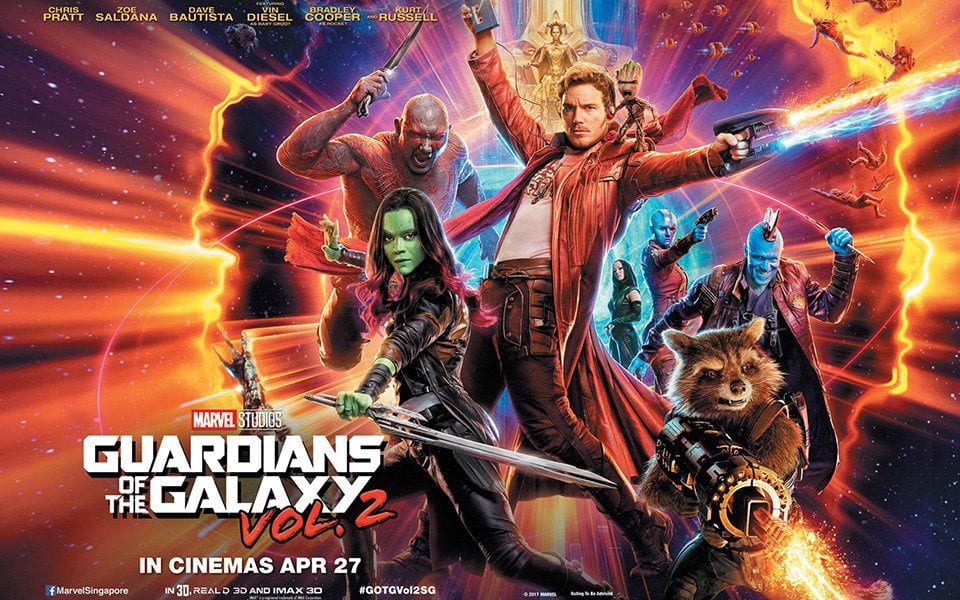
12. Captain America: The First Avenger (2011)
The movie that introduced Captain America (Chris Evans) to the MCU is more competent than good. Marvel Studios wasn’t as bold as it would later become, and The First Avenger was made as a very by-the-books superhero movie, following a narrative formula which had been standardized as early as in 1978, with Richard Donner’s Superman. Thematically too, the film plays it very safe, fictionalizing World War II and carefully avoiding references to real history. This let director Joe Johnston avoid some of the ideological pitfalls of other early Marvel films like Iron Man, but only at the expense of relevance: at best, this film is a shallow frolic.
Still, The First Avenger gets quite a few things right too, starting from its deft use of irony and self-awareness to lighten the topical bombast. And while Peggy Carter (Hayley Atwell) may be a dull Strong Female Character and the Red Skull (Hugo Weaving) an even duller arch-villain, the film absolutely nails the characterization of Captain America himself. Steve Rogers, who is not an eminently multi-faceted hero in the comic books (and not always likeable, especially outside of the USA), is reframed here as gentle, insecure, and altogether human. He works so well that he practically carries the story on his back. This may not be the film to convert neutrals, but it pleased the fans. – Andrea Tallarita
Read more on Captain America: The First Avenger here.
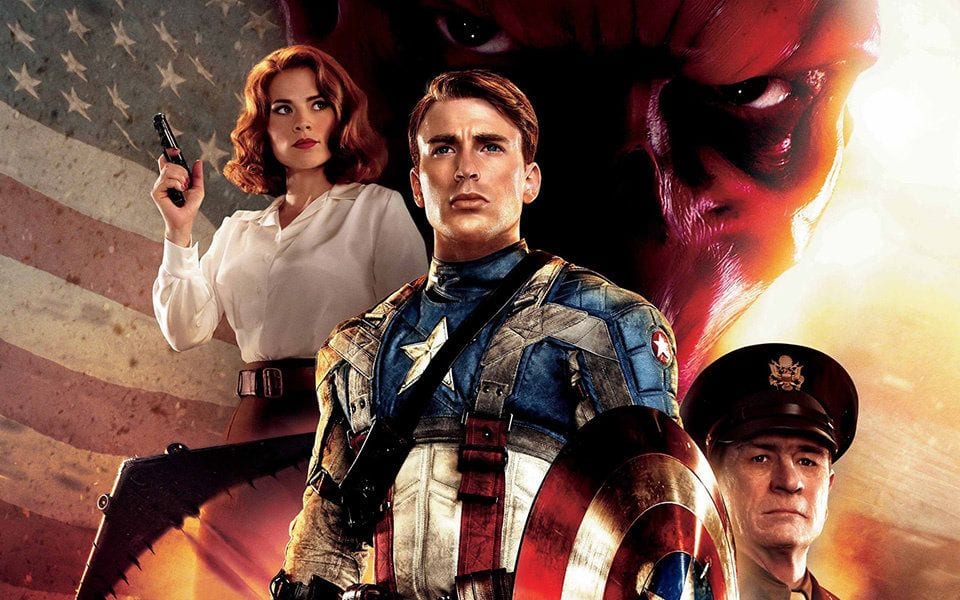
11. Iron Man 3 (2013)
As Phase One of the Marvel Cinematic Universe (MCU) drew to a close, the superhero formula was already getting tired. The Avengers felt more like a conclusion than a new beginning, which put a huge amount of pressure on 2013’s Iron Man 3 to succeed. Assuming the helm after 2010’s lackluster Iron Man 2, writer-director Shane Black needed to re-establish Iron Man as the face of the MCU. Black delivered, sharpening the jabs to complement Downey’s droll comic timing, and trapping his larger-than-life hero in a more intimate setting.
What audiences remember most, of course, is Black’s (re)interpretation of the uber-terrorist, Mandarin. His divisive decision to make Mandarin a comedic red herring signaled that Marvel was willing to take risks within the confines of their winning formula. Black’s playful spin paid off big at the box office. Without this success, it’s hard to imagine James Gunn receiving clearance for his ultra-quirky Guardians of the Galaxy, or Taika Waititi transforming Thor: Ragnarok into a glorified buddy comedy. Iron Man 3 might be lacking in franchise-defining moments but its impact is still being felt in the Marvel Cinematic Universe. – J.R. Kinnard
Read more on Iron Man 3 here.
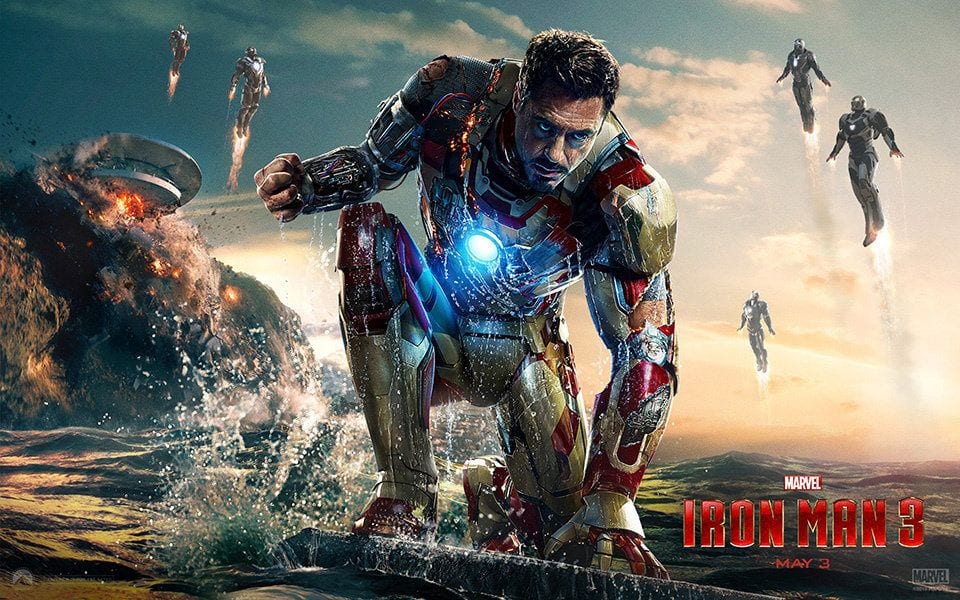
10. Captain America: Civil War (2016)
The Marvel Cinematic Universe is serialized storytelling on the largest-scale ever attempted. The serialization created a real emotional investment between audiences, and the characters and relationships of the MCU. So when it came time to tear the heroes apart, it had a real impact. Prior to Civil War, there had been three Iron Man films, two Captain America films, and two Avengers films. Tony Stark and Steve Rogers coming to blows was a confrontation seven films in the making.
The centerpiece fight, where 12 heroes battle each other at an abandoned airport, remains one of the greatest, most true-to-comics action set-pieces ever put on film. Besides the central conflict, Civil War also features the big-screen debut of future cinematic superstar Black Panther and the MCU debut of Spider-Man, who became a shared character between Marvel and Sony in a landmark creative deal. The film has been criticized for having an underwhelming villain in Zemo. The MCU has always been more about the heroes than the villains, however, and Zemo’s purpose is simply to light the fuse that would blow the Avengers apart. In that respect, he may be the most successful MCU villain this side of Thanos. – Michael Curley
Read more on Captain America: Civil War here.
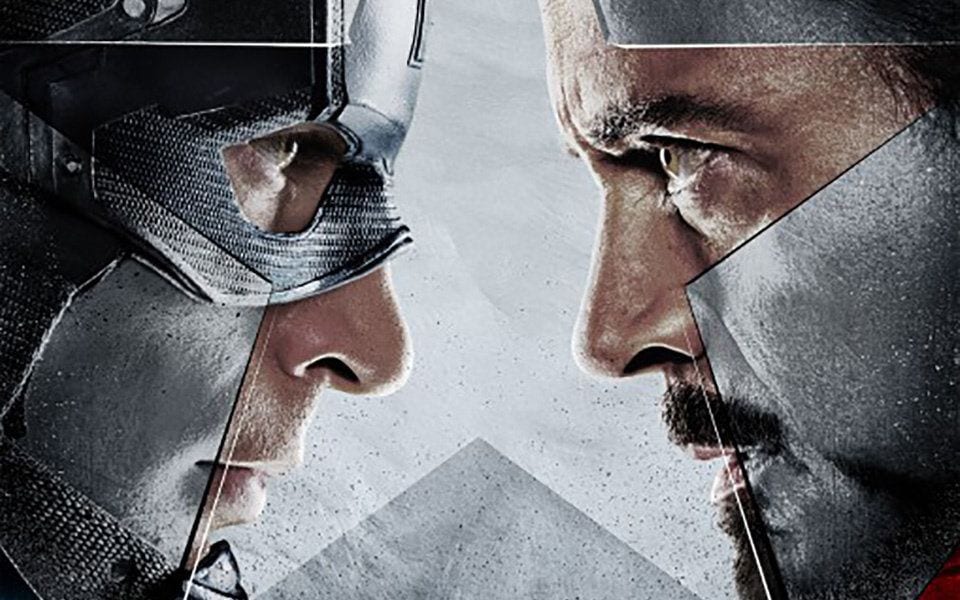
9. Spider-Man: Homecoming (2017)
Four years before the MCU even started, we already had one of the best superhero movies ever made in Sam Raimi’s Spider-Man 2. Since then, we had the disaster that was Spider-Man 3, the just fine Andrew Garfield iterations, and a general sense of disappointment over the handling of Marvel’s most beloved character.
While Tom Holland’s cheeky appearance in Captain America: Civil War brought hope, Spider-Man: Homecoming captures the plucky spirit of the character better than any other cinematic interpretation. He’s driven to do the right thing even if he lets his friends down or doesn’t follow the orders of stand-in father figure Tony Stark (whose presence really gives Peter Parker something to aspire to).
Yet Homecoming‘s greatest triumph was course-correcting Marvel’s biggest criticism to this point: it gave us a truly worthy villain. Adrian Toomes (a wonderful Michael Keaton) had lost his livelihood due to the government taking over cleanup duties from the New York event. Toomes starts working against the law to try and support his family, feeling that the ends justify the sometimes-cruel means. While you may not agree with Toomes’ methods, he — like Black Panther‘s Killmonger or Infinity War‘s Thanos — was surprisingly sympathetic, the kind of villain you’re against, but not without feeling a bit sorry for them all the same. In short, separated only by a hair that stands up on your arm when your Spidey Sense is initiated, Homecoming will go down as the best Spider-Man film so far in existence. – Evan Sawdey
Read more on Spider-Man: Homecoming here.
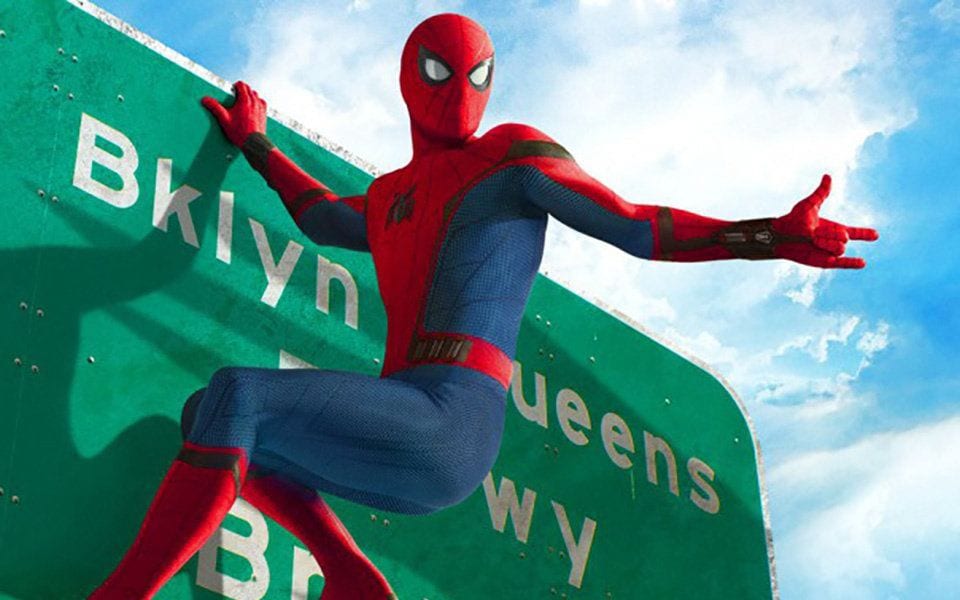
8. Doctor Strange (2016)
By the 13 th film in the MCU, the trickiest part of origin stories had proven to be weaving a character’s backstory into the film’s overarching action plot. Too often, films in the MCU were bifurcated; a tantalizing origin story being swallowed by a ‘villain of the week’ punch-fest somewhere around the film’s midpoint. Doctor Strange finally cracked the code, and with it, enabled the widely successful origin stories of Spider-Man: Homecoming and Black Panther.
The masterstroke was hiring writer-director Scott Derrickson to helm the first outing into Marvel’s ‘mystical realm’ and then signing Benedict Cumberbatch to bring it to life. Derrickson ( Sinister, Deliver Us from Evil) understands mood and mysticism. He creates convincingly warped dimensions where Doctor Strange can not only hone his sorcery, but tame the arrogance that once threatened to consume him. As Strange grows as a sorcerer and matures as a man, the film’s action plot intensifies accordingly.
The Manhattan mirror sequence, in which skyscrapers are mutated and mangled in thoroughly psychedelic ways, might be a visual highpoint for the entire MCU. There’s a spirit of fun and imagination throughout Doctor Strange that prevents the mysticism from ever becoming too ponderous. It also showcases a brilliant ending predicated more on ingenuity than pyrotechnics. As both a standalone film and a continuation of the MCU, Doctor Strange succeeds on almost every level. – J.R. Kinnard
Read more on Doctor Strange here.
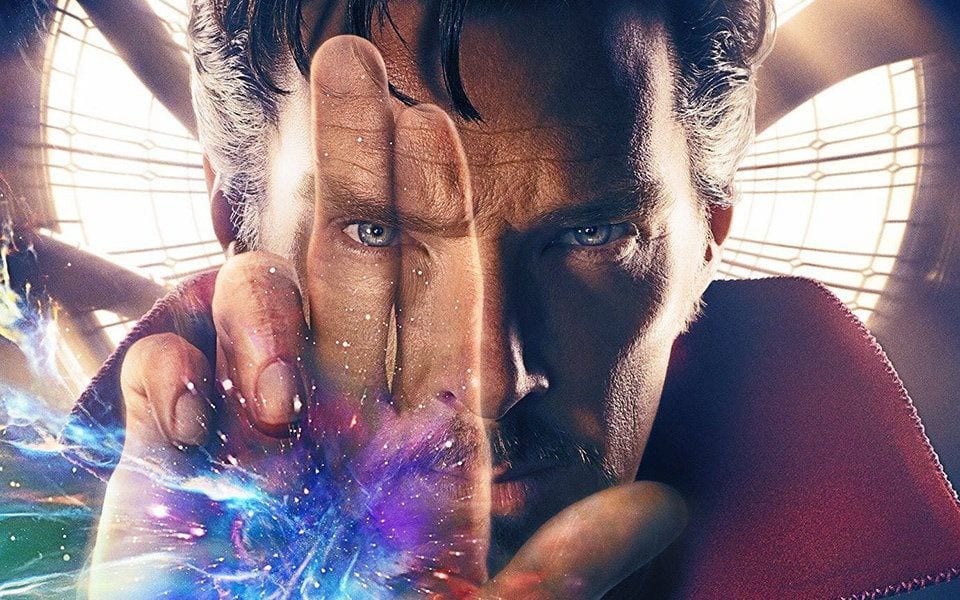
7. Avengers: Infinity War (2018)
And so we’ve reached the beginning of the end.
Ten years and 19 films in the making, the Marvel Cinematic Universe wraps up their odyssey with a colossal battle against the purple Titan, Thanos. Directors Anthony and Joe Russo ( Captain America: The Winter Soldier) are tasked with connecting countless storylines and dozens of superheroes into a satisfying action extravaganza. Their astonishing triumph is a credit to not only their ingenuity, but Marvel’s (specifically Kevin Feige’s) stubborn determination to carry this cinematic vision to its rightful conclusion.
Those who deride Avengers: Infinity War for lacking any discernible character development should look again. Each of the superheroes must conquer the character issues that have hampered them in previous adventures. Some are more successful than others. Thor is able to overcome the shadow of his father and brother when he spectacularly resurrects a dying planet, but Peter Quill fails to restrain his emotional immaturity and it costs the Universe dearly. Each path has led to this calamitous moment in time, and the Russos refuse to shortchange any of the drama.
Obviously, a final resolution awaits in 2019’s as yet untitled Avengers sequel, but Avengers: Infinity War finds its own resolution of sorts. We see the spectacular results of each hero’s personal battles, pained decisions, and physical anguish. How they live with the consequences of their actions will guide the MCU for years to come. – J.R. Kinnard
Read more on Avengers: Infinity War here.
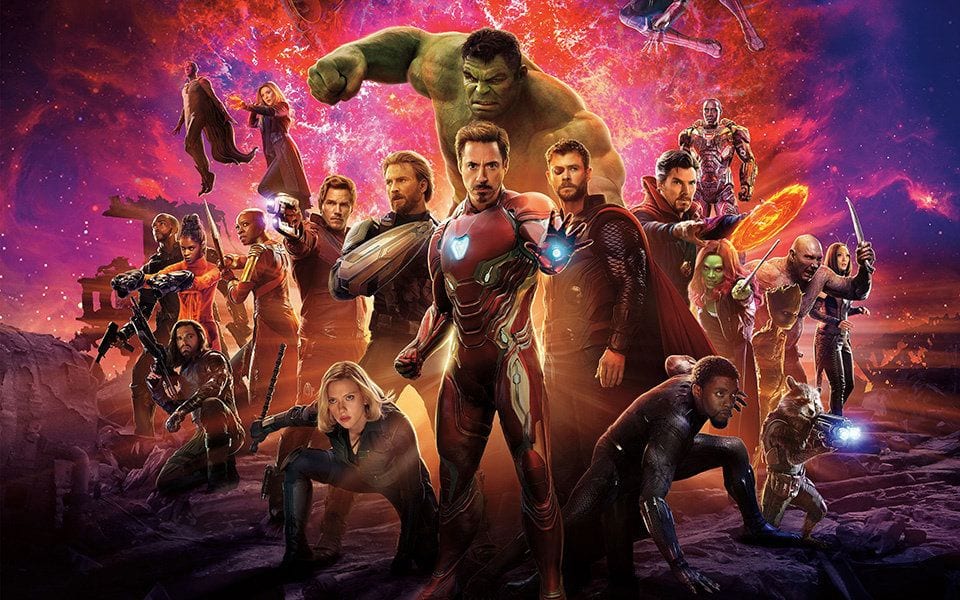
6. Captain America: The Winter Soldier (2014)
With The Winter Soldier, Disney decided to take Captain America out of the superhero genre and into the unfamiliar terrain of spy thrillers. Where its predecessor was formulaic, Steve Rogers’ second outing had no compunctions about breaking genre formulae and making what was essentially a Jason Bourne or a Mission: Impossible film set in the MCU.
The experiment was a success, and alongside Guardians of the Galaxy (which came out that same year), The Winter Soldier was responsible for really blowing open the narrative conventions traditionally associated with the superhero genre. This is a pure action blockbuster, the strength of which rests above all on its exceptionally clever and creative set pieces, which are perfectly sustained by arguably the best martial arts choreography in any MCU film. Unlike its predecessor, it makes an effort at some ideological engagement (though the results remain fairly superficial).
The picture is not exempt from weaknesses, the most obvious of which comes, alas, from the saddle of its comic-book heritage. Some elements, like the Hydra conspiracy, or the backstory of the Winter Soldier aka Bucky Barnes himself, feel a little too outlandish for a film that otherwise strives for tonal composure. Nonetheless, this is a mature effort by Marvel Studios, one that never loses sight of its target and ultimately hits a full bulls-eye. – Andrea Tallarita
Read more on Captain American: The Winter Soldier here.
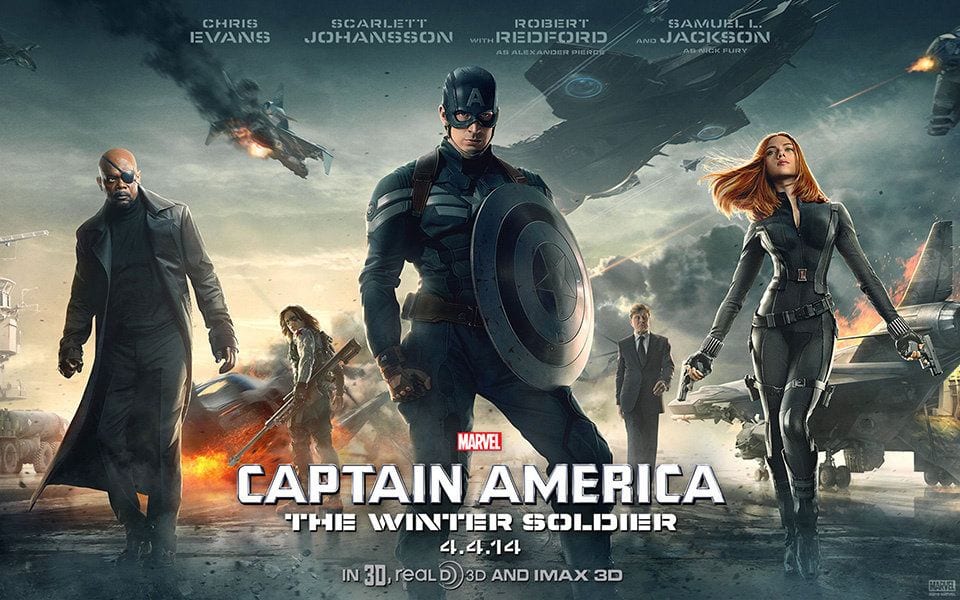
5. Thor: Ragnarok (2017)
With few exceptions (see Captain America: The Winter Soldier and Black Panther), the movies of the MCU have a bit of a middle-ground problem. They’re often amusing and fun, but they’re rarely genuinely comedic. While each movie is stocked with the requisite explosions, fight sequences, and ominous line readings, the characters and narrative arcs of many Marvel films end precisely where they started (so as to not confuse new moviegoers when the sequel rolls out).
The status quo remains unchanged, characters are often always redeemable, and everyone cracks wise the entire time. Not so with Thor: Ragnarok, the funniest and also one of the more consequential outings in the cinematic universe. It also makes Thor Odinson, once the second-most boring Avenger (sorry, Hawkeye), an interesting character in his own right. Where before he was largely naïve and one-note, the Thor of Ragnarok has a wicked sense of humor tempered by his generally sunny nature, imbued with an increasingly urgent sense of responsibility as the ruler of Asgard. Indeed, the mere fact that Asgard only survives Ragnarok as an idea rather than a place is proof that the stakes are higher and the drama more compelling in Ragnarok, despite jokes about The Devil’s Anus and Jeff Goldblum’s Grandmaster apparently having the time of his life. Director Taika Waititi is arguably one of the best things that ever happened to the MCU, proving that while he can color within the lines, he can make those colors really, really pop. – Deborah Krieger
Read more on Thor: Ragnarok here.
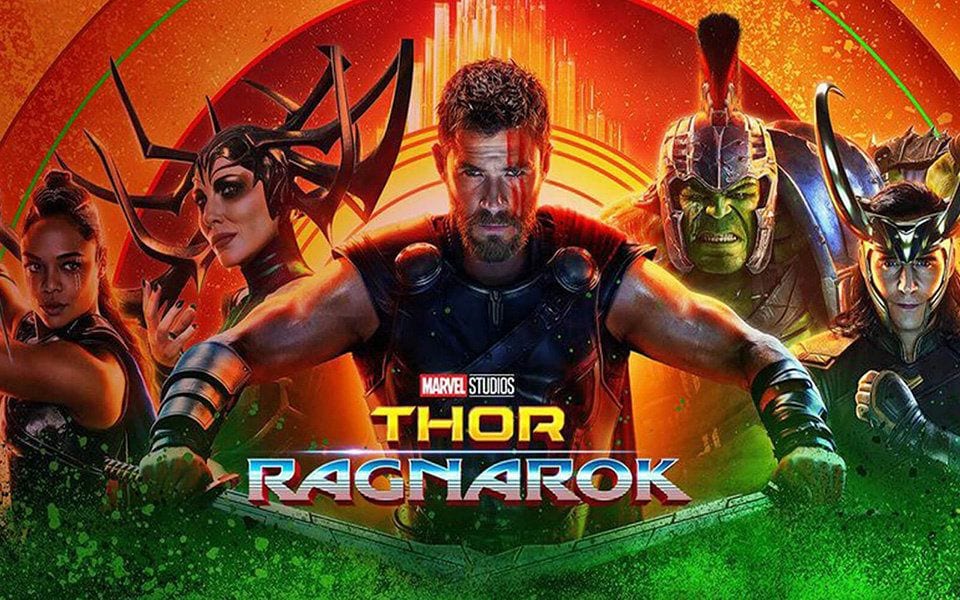
4. Iron Man (2008)
Remember that time in history when Marvel didn’t dominate the blockbuster film industry? The last year of that era was 2007, a year that featured the worst of the Sam Raimi Spider-Man trilogy, a quite awful Fantastic Four sequel, and Nicolas Cage as Ghost Rider. But in 2008, Marvel decided to take things into itsowns hands, tapping Jon Favreau to direct the first film put out by Marvel Studios, the one that would change everything: Iron Man.
The film catapulted a rebounding Robert Downey, Jr. back to stardom as he perfectly portrayed Tony Stark, the egotistical “genius, billionaire, playboy, philanthropist” who is taken captive by a terrorist group in the Middle East. Stark’s character arc during the film from narcissistic lover of money to compassionate vigilante highlights arguments against corporate greed (embodied in his company’s manager Obadiah Stane played by Jeff Bridges), and especially war profiteering as Stark realizes that his weapons are being used on both sides of the conflict. While the critiques on foreign policy and corporate greed were timely in the midst of the Iraq War, Iron Man surpasses most superhero films to this day just on the merits of its explosive action and witty banter between Downey Jr. and, well, everyone else. – Chris Thiessen
Read more on Iron Man here.
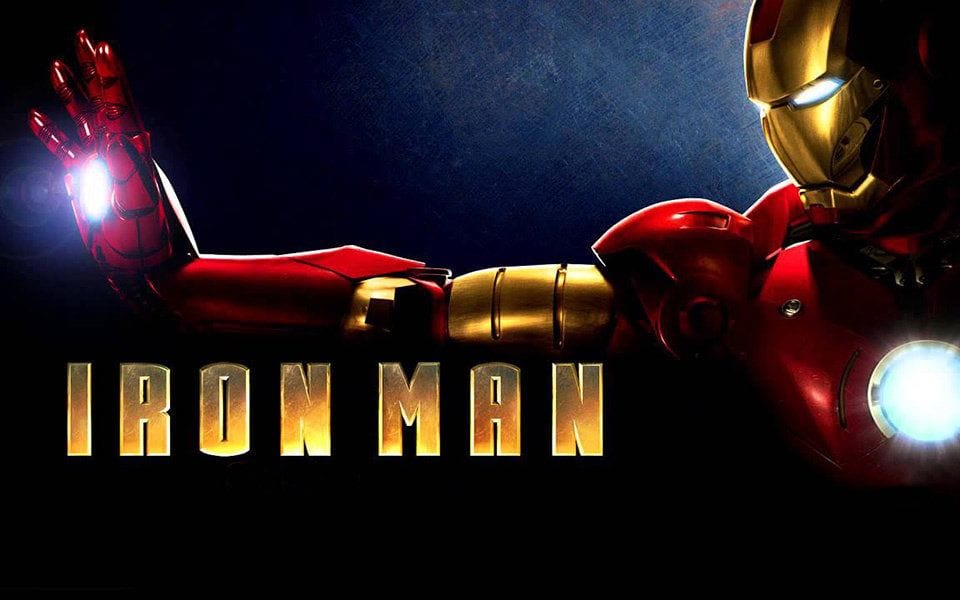
3. Black Panther (2018)
A decade since the beginning of the Marvel Cinematic Universe, the series was as popular as ever. Riding the momentum of hit sequels Thor: Ragnarok and Guardians of the Galaxy, Vol. 2, and gearing up for the climactic moment that would be Avengers: Infinity War, Marvel turned things over to director Ryan Coogler to create perhaps the most dynamic and important standalone superhero story in the series. Tradition and technological excellence are on full display in Black Panther‘s fictional African country of Wakanda, creating a vibrant Afrofuturistic world which seamlessly brings together the Amazon-esque warrior spirit of Okoye (Danai Gurira) and the creative mind of Shuri (Letitia Wright), which probably surpasses that of Tony Stark.
But it’s the physical and ethical boxing match between King T’Challa (Chadwick Boseman) and challenger Killmonger (Michael B. Jordan) that creates excellent commentary for our world to ponder. Shying away from straightforward good vs. evil, Black Panther recognizes the evils black people have suffered worldwide. While the militant Killmonger experienced injustice firsthand growing up in California, T’Challa’s life in isolationist Wakanda kept him in a literal bubble of safety. In the end, Black Panther is an important piece in the history of the cinematic portrayal of African-Americans and also stands as a needed reminder to an America moving toward isolationism that progress requires global collaboration. – Chris Thiessen
Read more on Black Panther here.
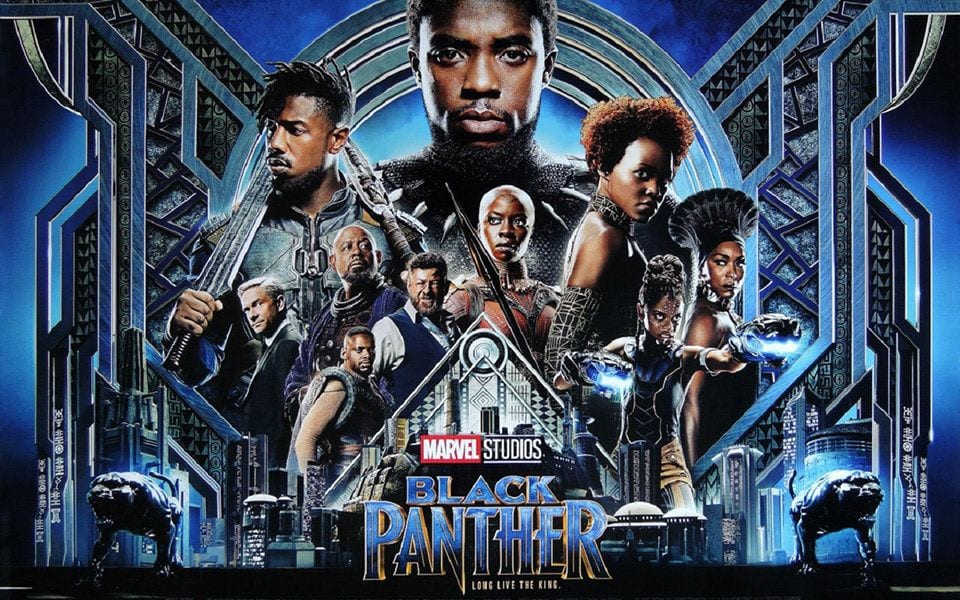
2. Guardians of the Galaxy (2014)
Marvel Studios refused to play it safe following the massive success of The Avengers, and Guardians of the Galaxy is the clearest example of them continuing to take risks. This incarnation of the Guardians team, consisting of one human, two green humanoids, a talking raccoon, and a walking tree that can only utter three words, had only existed in the comics for six years when the film was released, and threatened to be too weird for mainstream audiences.
Also risky, Marvel entrusted the property to writer/director James Gunn, who was only known up to this point for low-budget, idiosyncratic horror films. But the risks paid off. Guardians of the Galaxy was a big hit, making Star Lord, Rocket, Gamora, Drax and Groot household names around the world. It is a bright, colourful, hip, exciting, deeply felt, and very funny film, all scored by the very best radio jams from the late-’60s to the early-’80s.
The film cemented these features as the hallmarks of most MCU films moving forward. The cosmic setting and deep-cut comic book lore on display also proved that mainstream audiences were ready for the geekiest concepts to be adapted to the big screen, signalling that the MCU to go bigger and deeper in the future. In the years since its release, there has seemed to be a Guardians Effect, with studio blockbusters copying the jokey tone and retro soundtrack in an attempt to gain similar success, but few of them matched the energy and the heart of the original. – Michael Curley
Read more on Guardians of the Galaxy here.
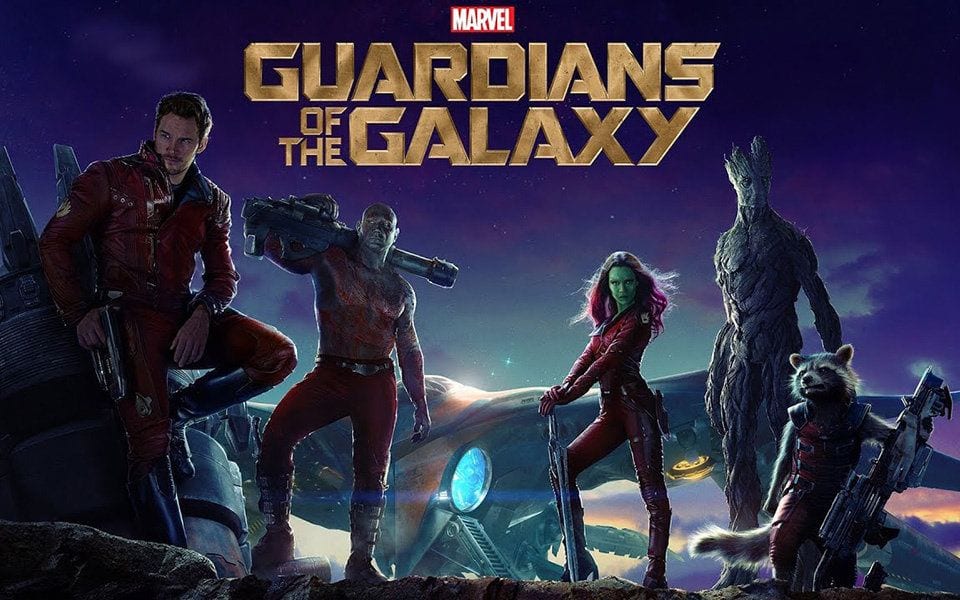
1. The Avengers (2012)
The best part about The Avengers is how utterly inconsequential its villain is.
Sure, within the first couple minutes, Loki kills several S.H.I.E.L.D. agents and puts others under mind control. But by the end of the movie, all that’s attacking New York City is a giant, utterly disposable CGI army. People die, buildings get smashed, and there’s also a sky-beam, meaning that on paper alone, the antagonists in The Avengers are no different than several lesser superhero films.
The reason The Avengers stands as the best film in the MCU is because, simply put, this is about the heroes. This is about Iron Man reluctantly being recruited for an organization he doesn’t trust. It’s about Captain America talking the mantle of team leader even if he’s apprehensive about the endgame. It’s about learning each hero’s strengths and weaknesses, finding out how gullible Thor is and how easily-provoked The Hulk can be. It’s about losing a beloved character and finding out that Nick Fury (Samuel L. Jackson) broke the news of this death in a fairly manipulative way to rally the team together.
After spending a few years watching these heroes go through the ringer, The Avengers finally put them all together. Joss Whedon’s film does enough groundwork to satisfy the hardcore Marvel fanboy, but also lets someone who’s never seen an MCU entry up to this point get to know the characters and root for them by the time the sky-beam is deactivated. This is the movie that finally let Hulk smash, that gave us a newfound love of shawarma, and made it feel like Earth’s Mightiest Heroes had a legitimate reason to unite.
The Avengers the culmination of years of planning and groundwork and, arguably, it’s a cross-platform meet-up that has never been bettered. Our hearts were broken during Infinity War, but that’s only because The Avengers allowed us to fall in love with them all in the first place. We had never seen anything like it, but after it was over, we’re still working on believing that we just saw the greatest superhero event in history. – Evan Sawdey
Read more on The Avengers here.
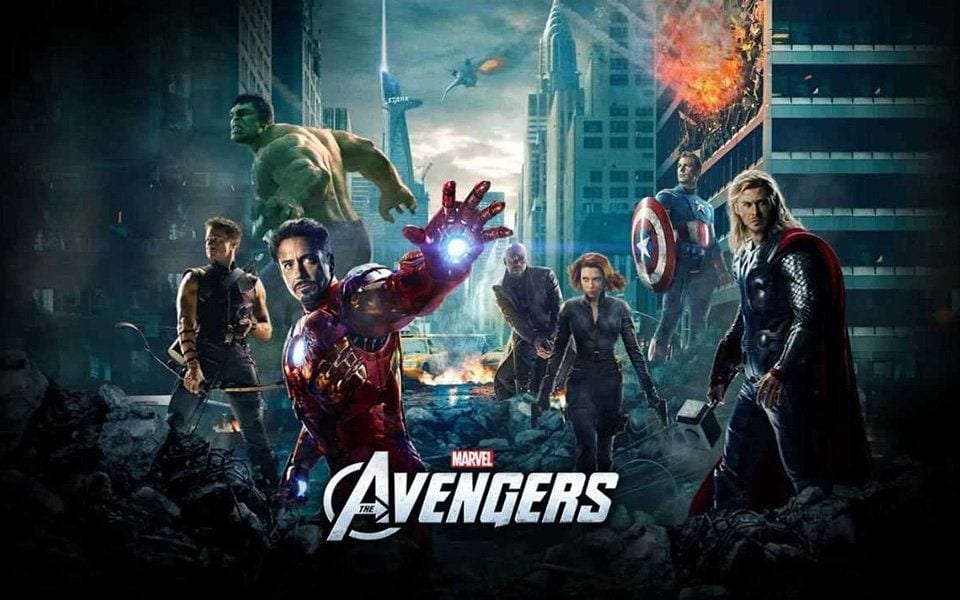
The Marvel Cinematic Universe is a feat in film history that has never been matched. Although there have been lower profile film series that surpass the MCU in numbers, nothing has reached the heights of popularity time and time again like that of our favorite Avengers. Perhaps the only argument for a film saga that matches the MCU is that of the James Bond series, an ongoing universe for more than 55 years which has proved largely successful in most of its 24 films. But where Marvel has become untouchable, even by 007, is that it has created a continuous story, full of individual origins stories and crossover mega-hits that have led up to a climactic encounter with Thanos in Avengers: Infinity War.
This film series format, modeled after the comic series it draws inspiration from, stands alone in today’s action blockbuster industry. For a decade now, we’ve enjoyed the leadership of Captain American and Iron Man, glorious Hulk smashes, the thunderous Thor, and more recently, the plucky Peter Parker and beautiful country of Wakanda. Every film (or at least almost every film) has something unique and exciting to offer to the wider universe and to our lives in the real world.
So with the release of the series-defining moment that was
Infinity War, our staff took on the task of assembling a ranking of the story so far, 19 films from Iron Man to Infinity War which have dominated the box offices, and in some cases pushed our social dialogue forward in important ways. But for more on that, you’ll have to read our list. – Chris Thiessen

